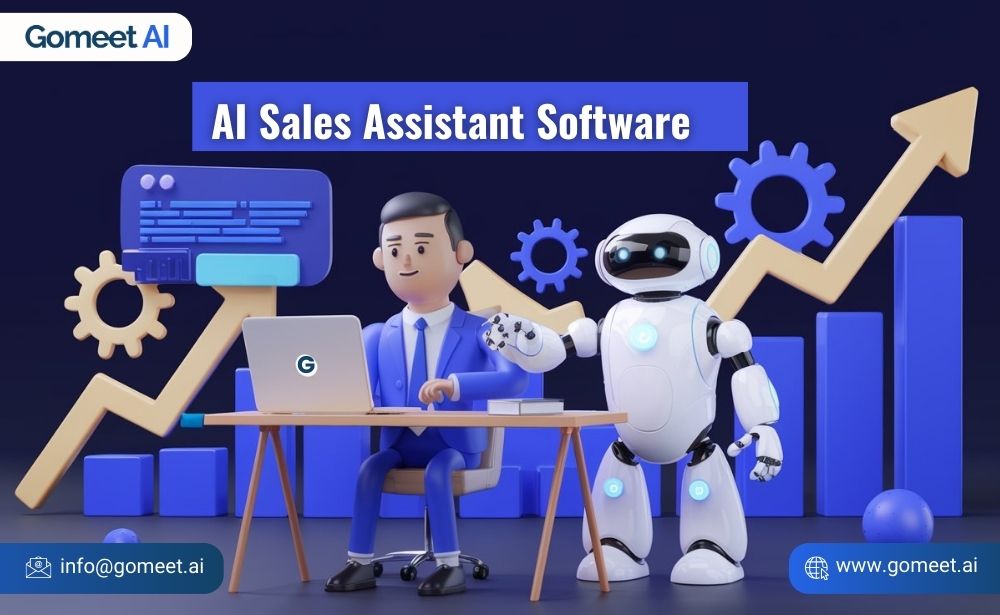Sales teams often find themselves buried in routine tasks—managing prospects, following up on leads, and scheduling meetings. These essential but time-consuming activities can prevent them from focusing on building relationships and closing deals. That’s where an AI-powered sales assistant comes in. According to McKinsey, 30% of all sales tasks can now be automated, helping businesses streamline processes and boost productivity. With capabilities like automated lead qualification, personalized follow-ups, and scheduling, AI is transforming the way B2B sales teams operate, making their efforts smarter and more efficient.
Let’s explore how these AI-powered tools are changing the game for sales teams everywhere.
What is an AI-Powered Sales Assistant?
An AI-powered sales assistant is a sophisticated tool that automates various sales tasks traditionally done manually. From handling repetitive tasks to managing customer interactions, an AI sales assistant ensures that every aspect of the sales funnel is optimized. It not only saves time but also delivers higher accuracy and personalization, allowing sales teams to focus on what they do best—closing deals.
The core features of an AI-powered sales assistant include:
- Automated Lead Qualification: AI assistants can qualify leads based on predefined criteria, ensuring that sales teams only spend time on high-potential prospects.
- Follow-ups: Sending timely follow-up emails is critical in B2B sales. AI assistants can automate this task, ensuring no opportunity is missed.
- Email Drafting: AI tools can draft personalized emails to prospects based on their industry, position, and preferences, significantly increasing engagement rates.
- Meeting Scheduling: These assistants can handle the often tedious task of scheduling meetings, ensuring sales representatives’ calendars are optimized and conflicts avoided.
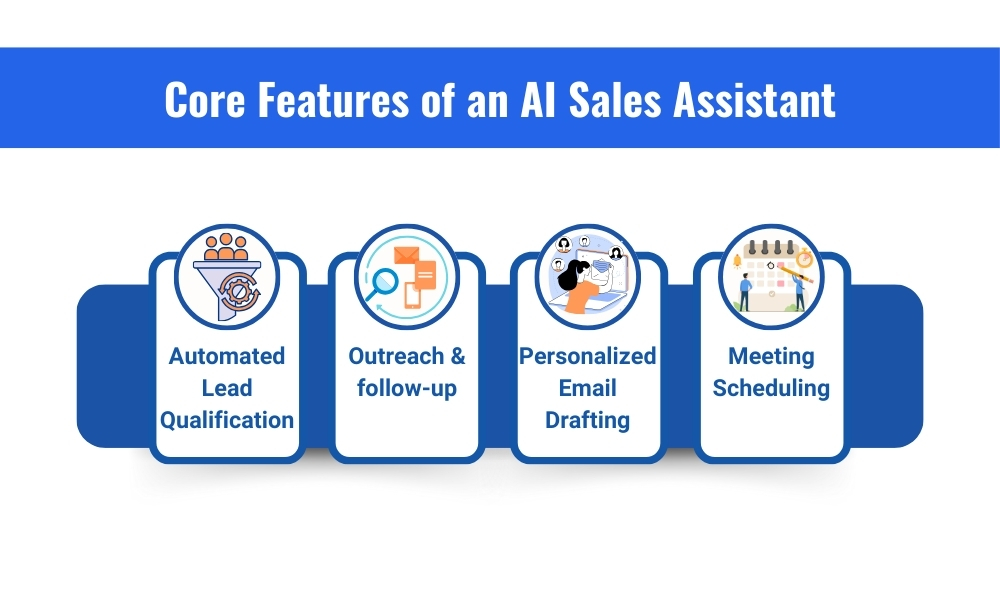
In short, an AI-powered sales assistant becomes an indispensable member of the sales team, handling critical yet routine tasks that free up time for human agents to build relationships and close more deals.
The Role of AI-Powered Sales Assistants in B2B Sales Automation
When integrated into B2B sales automation, an AI sales assistant offers several key benefits that drive significant growth and efficiency:
Enhanced Efficiency
A HubSpot study found that administrative tasks like data entry and scheduling take up an average of 21% of the time spent by B2B sales teams. With an AI-powered sales assistant, these time-consuming tasks are automated, allowing salespeople to focus on higher-value activities, such as interacting with clients and closing deals.
By automating mundane tasks, sales assistants help streamline the sales process, making it more efficient. This means sales teams can focus their energy on building relationships and converting leads, rather than being bogged down by repetitive tasks.
Improved Lead Qualification
One of the standout features of AI in B2B sales automation is its ability to score and qualify leads. Using predictive analytics and machine learning, automated lead qualification allows AI sales assistants to identify which leads are most likely to convert, allowing sales teams to focus their efforts on those with the highest potential.
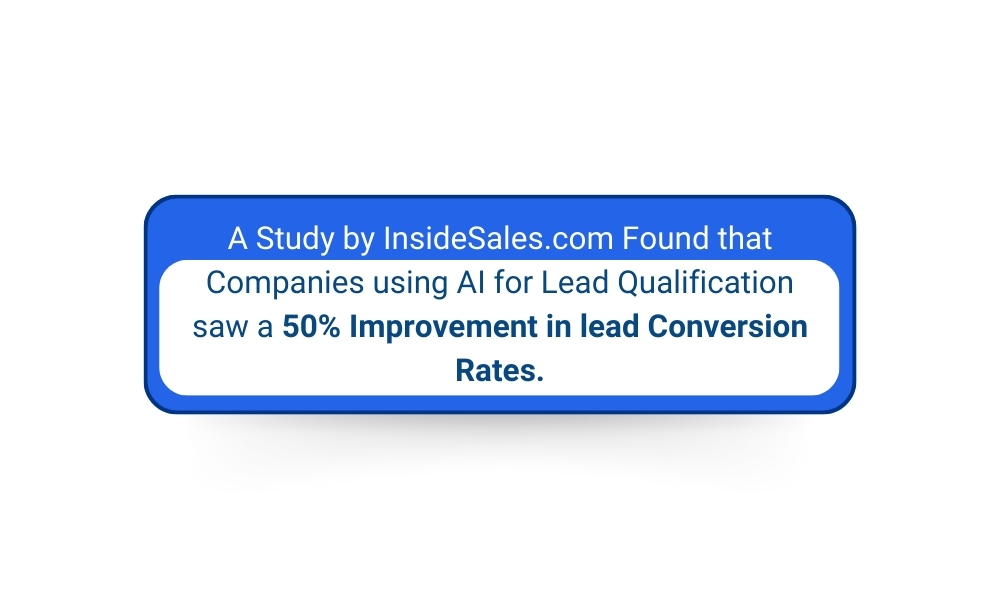
By implementing automated lead qualification, businesses can ensure that their sales teams are working with the most promising prospects, reducing wasted time and increasing overall efficiency.
AI-Powered Sales Assistants for Personalized Outreach in B2B Sales
In B2B sales, personalized outreach is a critical component of success. Prospects and clients expect customized messaging and solutions that resonate with their specific needs. AI-powered sales assistants can help deliver this level of personalization at scale, ensuring that every interaction is tailored to the prospect.
Key benefits of personalized outreach in B2B sales using AI include:
- Higher Engagement Rates: AI sales assistants can segment customer data and craft personalized messages for each prospect, ensuring the right message is delivered to the right person at the right time. Personalization can lead to a 10-15% increase in sales, as highlighted in a report by Boston Consulting Group (BCG).
- Scalability: While personalizing messages manually can be time-consuming, AI allows businesses to scale their outreach efforts, reaching more prospects with the same level of personalization.
- Better Conversion Rates: By delivering targeted, relevant content to prospects, sales teams can significantly improve conversion rates and build stronger relationships.
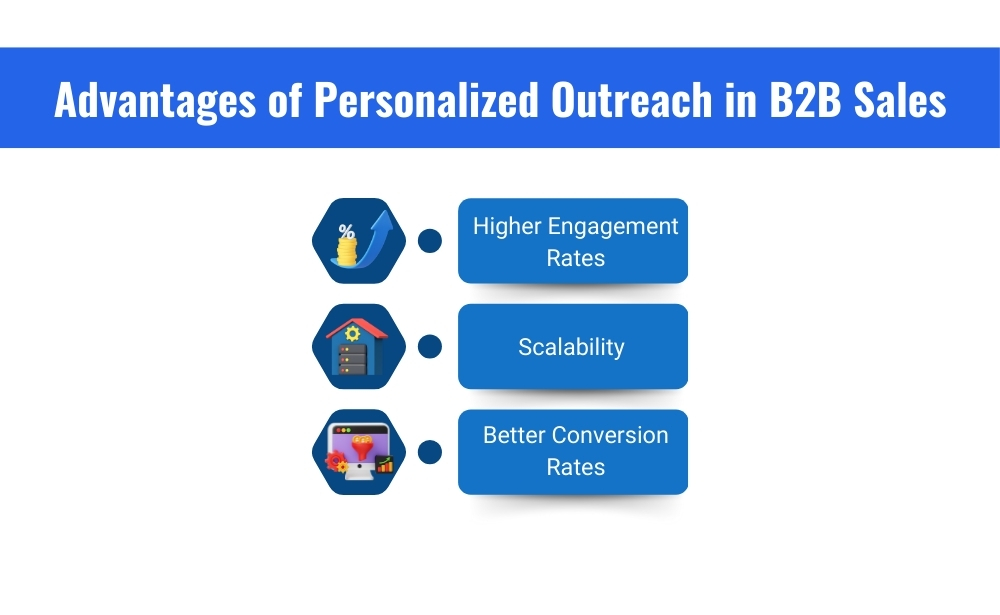
The Role of AI Sales Forecasting in B2B Sales
Another key advantage of using an AI-powered sales assistant is its ability to enhance AI sales forecasting. AI tools can analyze historical data and customer behavior, providing insights that help sales teams predict future trends and outcomes.
AI sales forecasting plays a crucial role in B2B sales, enabling businesses to:
- Make Data-Driven Decisions: By analyzing sales patterns and predicting future outcomes, AI can help businesses make smarter, more informed decisions.
- Prioritize Prospects: AI can identify which prospects are most likely to convert, allowing sales teams to focus their energy on the leads with the highest potential.
- Optimize Sales Strategies: Real-time data insights provided by AI allow businesses to fine-tune their sales strategies, leading to better overall performance.
A study by Salesforce found that businesses leveraging AI insights see a 40% increase in sales productivity. By using AI sales forecasting, companies can proactively address potential challenges and seize opportunities to maximize revenue.
Transforming B2B Sales with Automation
The real power of an AI-powered sales assistant lies in its ability to transform sales workflows. Here’s how it makes a difference:
- Seamless Workflow Integration: AI sales assistants can easily integrate with existing systems, making it simple for sales teams to track customer interactions, automate processes, and centralize data.
- Automation in Lead Nurturing: AI tools can automatically send follow-up emails, reminders, or even product recommendations, ensuring that no lead is neglected, thus shortening the sales cycle and increasing conversion rates.
- Sales Funnel Optimization: AI assistants streamline every stage of the sales funnel by scoring leads, automating outreach, and providing real-time insights. This allows for more targeted sales efforts and ensures that prospects are being nurtured effectively.
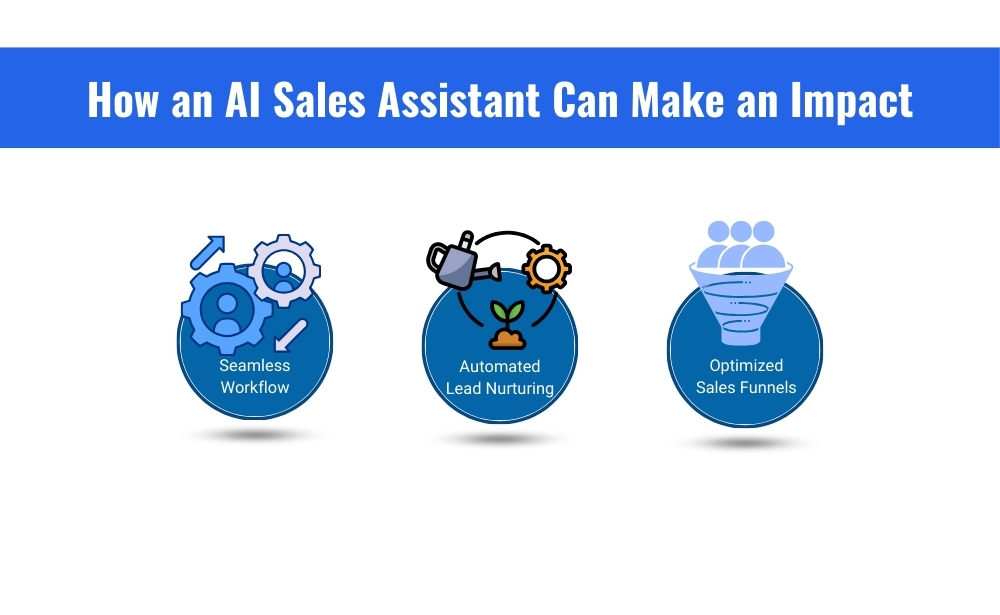
How to Implement AI-Powered Sales Automation in Your Business
Implementing an AI-powered sales assistant into your B2B sales strategy is a straightforward process. However, businesses must first assess their needs. Is your sales team bogged down by repetitive tasks? Are you missing out on high-potential leads due to a lack of follow-up? If so, now might be the time to adopt an AI-powered assistant.
Here are the key steps to get started:
- Choose the Right Tool: Ensure that the AI assistant integrates with your existing systems and is scalable to meet your future needs.
- Train Your Team: Your sales team should be trained to fully leverage AI-driven tools. While AI can automate many tasks, human oversight is still needed to ensure a seamless experience.
- Monitor Performance: Track your sales performance after implementing the assistant to measure its impact. This will help identify areas for improvement and further optimize the automation process.
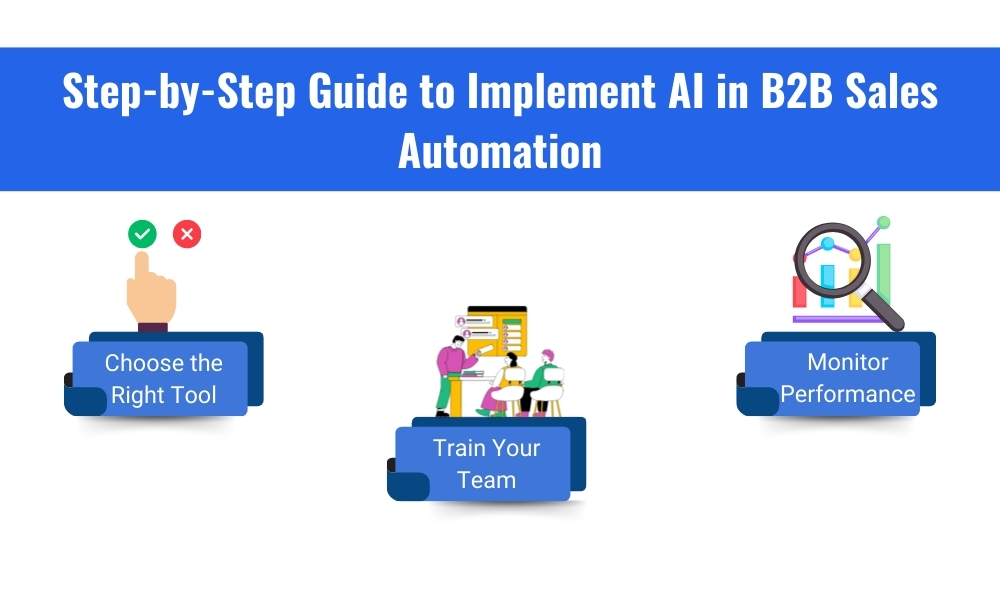
The Future of B2B Sales Automation with AI
The future of B2B sales is inextricably linked to automation. As AI continues to evolve, tools like AI-powered sales assistants, chatbots, voice assistants, and AI sales forecasting will further enhance the sales process. The B2B companies that adopt AI-powered solutions will not only stay competitive but will likely outperform their peers.
Some key trends to watch include:
- Predictive Analytics: AI will become even more advanced in predicting customer behavior, allowing businesses to be more proactive in their sales strategies.
- Deeper Personalization: As AI technology advances, the level of personalization in sales outreach will continue to improve, offering even more tailored experiences for B2B prospects.
- Real-Time Decision Making: AI will enable businesses to make faster, data-driven decisions, optimizing sales efforts and maximizing returns.
Conclusion
Incorporating an AI-powered sales assistant into your B2B sales automation strategy can lead to substantial improvements in efficiency, lead management, and customer engagement. With automated lead qualification, personalized outreach, and real-time insights through AI sales forecasting, AI-powered tools have the potential to revolutionize your B2B sales process.
Businesses that embrace AI-powered automation are not just keeping up with industry trends—they’re setting themselves up for long-term success in an increasingly competitive market. If you want to adopt these game-changing technologies, Gomeet AI offers seamless, AI-powered solutions to help your business scale and optimize its sales efforts.

